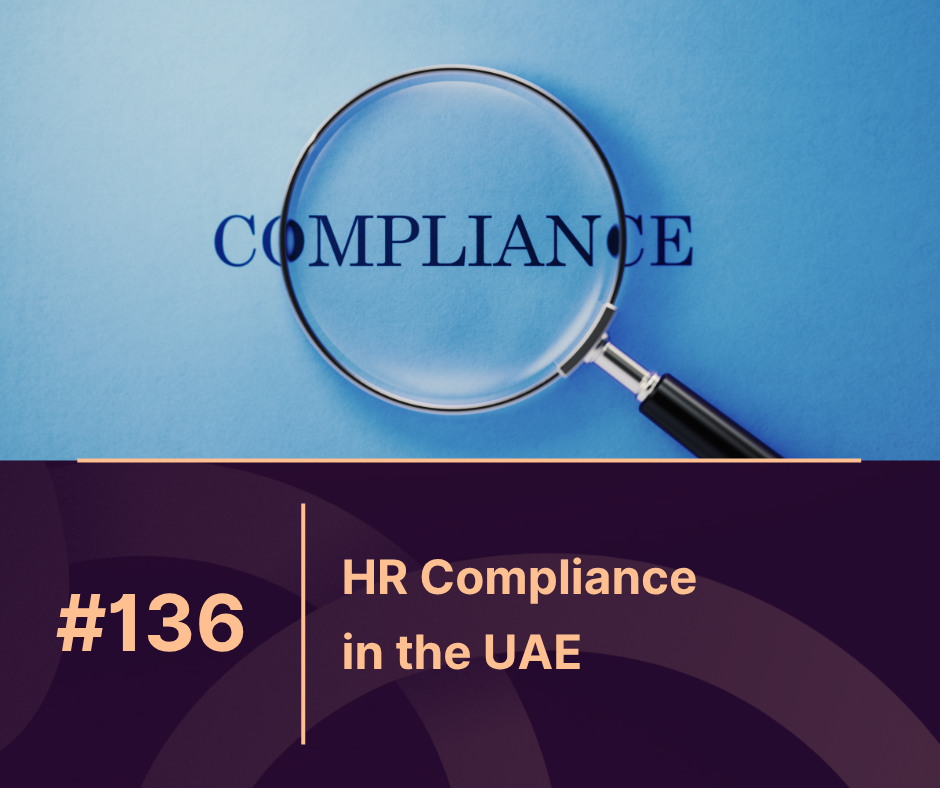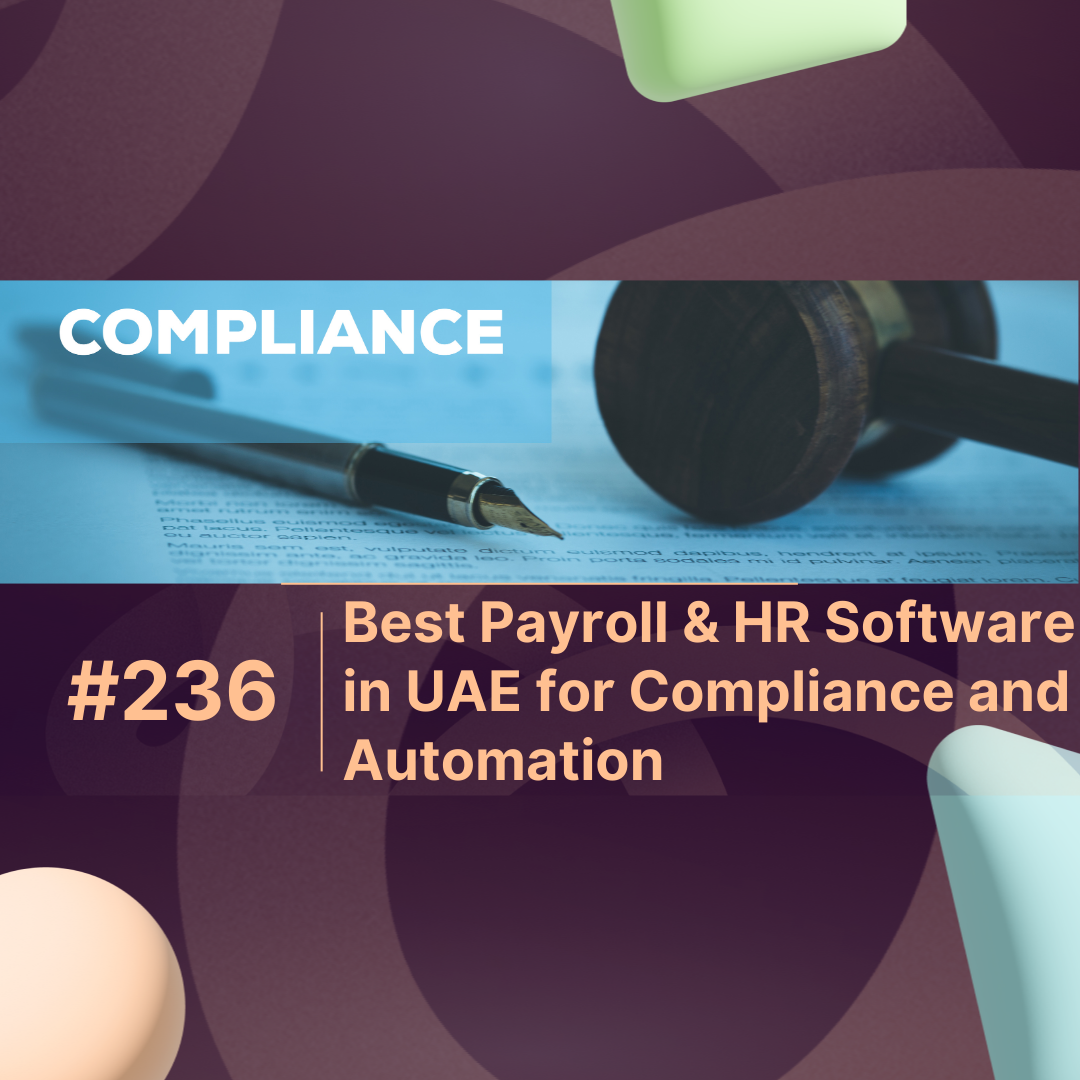Overview
Staying compliant with HR regulations in the UAE isn’t just a legal requirement—it’s a strategic business necessity in 2025. With evolving federal mandates, AI-driven audits, and growing employee rights, businesses must proactively align with the latest HR standards to avoid penalties and enhance workforce stability. This blog breaks down key obligations for employers, recent legal updates, and actionable best practices to ensure HR compliance in the UAE, especially for SMEs, multinationals, and free zone entities.
What is HR Compliance in the UAE?
HR compliance in the UAE refers to an employer’s adherence to the country’s labor laws, regulations, and policies governing employee rights, contracts, payroll, benefits, and workplace practices. This includes federal laws like UAE Labour Law (Federal Decree-Law No. 33 of 2021), DIFC employment regulations, free zone rules, Emiratisation mandates, and tax and social security obligations.
Direct Answer:
To stay compliant in 2025, UAE employers must maintain proper documentation, register employees with MOHRE, follow Emiratisation quotas (especially in private sector roles), adhere to contract standards, and update policies on working hours, leave, and termination in line with recent reforms.
Key Areas of HR Compliance in 2025
| Compliance Area | Requirement | Updated For 2025? |
|---|---|---|
| Employment Contracts | Must be limited-term (max 3 years); Arabic + English versions required | ✅ |
| Emiratisation | 2% annual increase for firms with 50+ employees in non-free zones | ✅ |
| WPS Salary Processing | Mandatory for all private employers; late salary triggers fines | ✅ |
| Termination & Notice | Minimum notice 30 days; unlawful dismissal includes lack of written warning | ✅ |
| Leave Management | 30 calendar days annual leave, 90-day sick leave (45 paid, 45 unpaid) | ❌ (no change) |
| Maternity & Parental Leave | 60 calendar days (45 paid, 15 unpaid); 5 days paid parental leave for fathers | ✅ |
| Data Protection | Must comply with UAE’s Federal Data Protection Law (2022) | ✅ |
| AI-driven Audits | New pilot programs are using AI tools to scan for payroll or contract anomalies | ✅ |
New in 2025: What’s Changed?
The UAE has ramped up enforcement through digital inspections and Emiratisation dashboards. Employers failing to meet quotas risk suspension of new work permits and fines up to AED 100,000. Also new: remote work policies must now be documented and compliant with Ministry standards.
MaxHR Insight:
Platforms like MaxHR have emerged as a lifeline for UAE businesses, especially SMEs. With automated WPS reporting, contract templates aligned with MOHRE rules, and real-time compliance alerts, MaxHR helps companies stay audit-ready. Think of it as your compliance co-pilot in the AI-governed HR era.
How Non-Compliance Impacts UAE Employers
Non-compliance can lead to more than fines. It affects:
-
Work Permit Suspensions from MOHRE
-
Company Rating Downgrades in the Tawteen system
-
Visa Blockage for future hiring
-
Reputational Damage among job seekers and partners
Avoiding these starts with education and proactive implementation.
How to Ensure HR Compliance in the UAE
Staying compliant with UAE labor laws is no longer optional—it’s essential for business continuity and employee trust. In 2025, employers must keep pace with evolving regulations around working hours, end-of-service benefits, Emiratization quotas, and payroll transparency. The Ministry of Human Resources and Emiratisation (MOHRE) has introduced stricter reporting requirements, and non-compliance can result in heavy fines or restrictions on hiring. To manage these complexities, many companies are turning to HR and payroll software like MaxHR, which helps automate compliance tasks, ensure accurate wage protection system (WPS) submissions, and maintain proper documentation. By adopting the right tools and practices, businesses in the UAE can safeguard themselves legally while building a fair, transparent workplace for employees.
-
Conduct a Compliance Audit – Review all employee files, contracts, and WPS logs.
-
Update Policies – Align your HR manual with UAE Labour Law 2021 and 2025 directives.
-
Train HR Teams – Regular workshops on changes like Emiratisation and maternity laws.
-
Use Digital Tools – Platforms like MaxHR streamline reporting, contracts, and audits.
-
Monitor Deadlines – Renew contracts, Emirates ID, and visa paperwork in advance.
Best Practices for HR Teams in 2025
-
Use Dual-Language Contracts (Arabic and English)
-
Create Emiratisation Dashboards using tools like MaxHR or MOHRE API
-
Offer Compliance Webinars to managers
-
Deploy Exit Interviews to detect legal exposure
Pro tip: Document every policy update and acknowledgment digitally. It’s your first defense in an MOHRE inspection.
Conclusion
In the UAE’s evolving business landscape, HR compliance isn’t optional—it’s the foundation of operational integrity. Whether you’re a multinational in Dubai or an SME in Sharjah, aligning with updated regulations in 2025 is key to protecting your workforce and business license. With digital tools like MaxHR, achieving compliance can be simpler, smarter, and more efficient.
HR Compliance in the UAE
FAQs
Q1: What is the penalty for not processing salaries through WPS in the UAE?
A: Employers face fines up to AED 50,000 and can be blacklisted from future MOHRE permits.
Q2: How much has the Emiratisation requirement increased in 2025?
A: It’s risen by 2% for companies with over 50 employees. Non-compliance triggers fines and permit blocks.
Q3: Can UAE employment contracts be unlimited in 2025?
A: No. All contracts must be fixed-term (up to 3 years) as per the updated Labour Law.
Q4: Is it mandatory to offer parental leave in the UAE?
A: Yes. Maternity leave is 60 days (45 paid), and fathers are entitled to 5 days paid leave.
Q5: How can MaxHR help with UAE HR compliance?
A: MaxHR automates compliance tasks—WPS reporting, contract templates, document alerts—ensuring you stay aligned with UAE laws.



